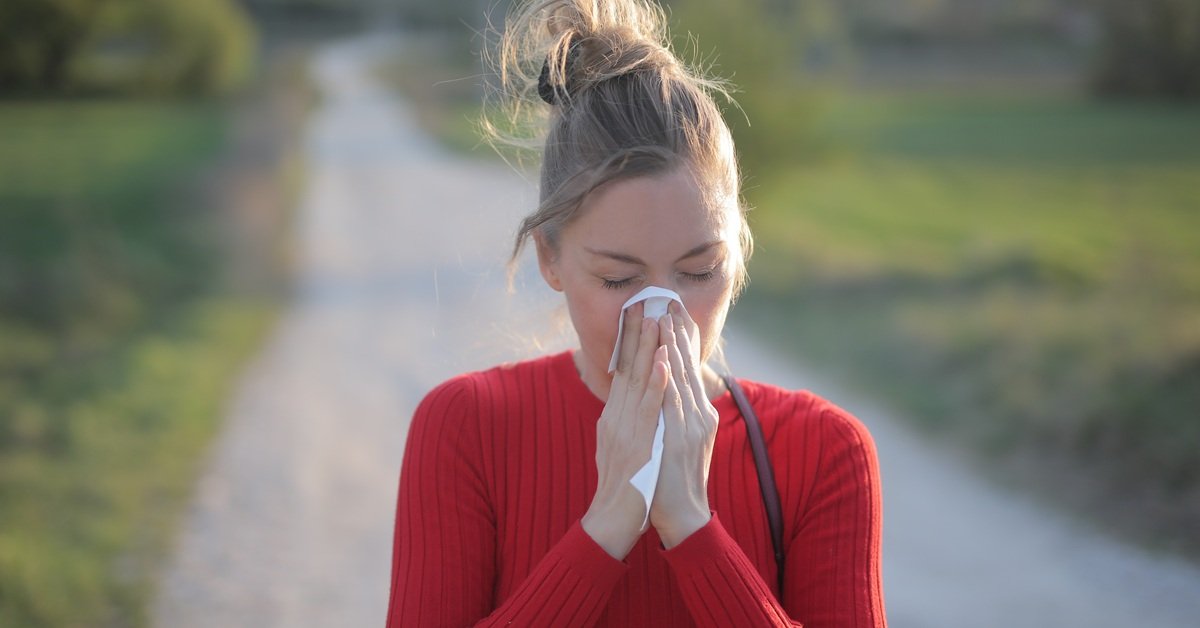
Dealing with Seasonal Allergies near Dallas TX: What You Need to Know
If you live in Dallas, Texas, or surrounding areas like Murphy, Plano, Wylie, Frisco, Garland, Allen, Parker, and Richardson, you know how unpredictable the weather can be. Unfortunately, that means the allergy season can also be unpredictable, with pollen levels fluctuating throughout the year. Whether you’re dealing with itchy eyes, sneezing, or congestion, managing seasonal allergies in this area can feel overwhelming.
As a family medicine doctor, I want to help you understand why allergies are so common in Dallas and surrounding areas and offer practical tips to help you manage them effectively. Here’s what you need to know.
Why Are Seasonal Allergies So Bad in Dallas?
Dallas has a unique climate that contributes to severe allergy seasons. The mix of warm weather, humidity, and a wide variety of plants means that allergens like pollen can thrive here almost year-round. In fact, Texas is home to a large number of trees, grasses, and weeds that release pollen at different times throughout the year.
Some of the most common allergens in Dallas and surrounding areas like Murphy, Plano, Wylie, Frisco, Garland, Allen, Parker, and Richardson include:
-
Tree pollen (mainly from oak, cedar, and pine trees) during the spring.
-
Grass pollen, which is most active in the late spring and early summer.
-
Weed pollen, particularly ragweed, during the late summer and fall.
These allergens are difficult to avoid because they are airborne and can travel long distances. Therefore, even if you try to stay indoors, they can still affect your health.
If you’re struggling with seasonal allergies, you’re not alone. These allergens can trigger symptoms like sneezing, itchy or watery eyes, nasal congestion, and coughing.
The Different Types of Seasonal Allergies in Dallas, TX
Dallas experiences a variety of allergy triggers throughout the year. Knowing what you’re up against can help you better prepare for allergy season. Here are the common types of seasonal allergies you may face:
-
Spring Allergies: Tree pollen (oak, cedar, and pine) is most prevalent during the spring months. The warm, breezy conditions make it easy for pollen to spread throughout the area, causing symptoms like sneezing and itchy eyes.
-
Summer Allergies: Grass pollen becomes a significant concern in late spring and early summer, particularly from Bermuda grass, ryegrass, and other types of grass commonly found in Texas.
-
Fall Allergies: Ragweed pollen is the main culprit in the fall. This type of pollen is especially problematic for those who suffer from seasonal allergies, and the cooler temperatures combined with increased moisture make it a prime season for weed pollens to spread.
How to Manage Seasonal Allergies in Dallas and Surrounding Areas
The good news is that you don’t have to suffer through allergy season. There are several strategies you can use to reduce your symptoms and breathe easier. Here are a few tips for managing seasonal allergies in Dallas, TX, and nearby cities:
1. Stay Updated on Pollen Counts
One of the best ways to stay ahead of your allergies is by keeping track of local pollen counts. Many weather apps and websites provide daily updates on pollen levels. On high pollen days, try to stay indoors as much as possible, especially during peak pollen times like early morning and late afternoon.
Pollen counts typically peak in the early morning hours, so limiting outdoor activities during this time can help prevent exposure to high pollen levels.
2. Limit Outdoor Activities
During peak allergy seasons, it’s important to be mindful of your outdoor activities. If you must go outside, wear sunglasses and a wide-brimmed hat to protect your eyes and face from pollen. Changing your clothes and showering after being outdoors can help remove pollen from your skin and hair.
It’s also a good idea to keep pets indoors during high pollen days, as they can carry pollen inside on their fur.
3. Keep Windows Closed
Although it may be tempting to open your windows to let in fresh air, doing so can allow pollen to enter your home. Keep your windows closed, especially on high pollen days, and consider using air conditioning to cool your home instead. Using the air conditioning can also help filter out some of the allergens that are floating in the air.
If you need to cool your home, make sure your air conditioning system is equipped with a clean HEPA filter, as it can help trap pollen and other allergens.
4. Use Air Purifiers
Investing in an air purifier with a HEPA filter can make a big difference in reducing allergens inside your home. This can be especially helpful if you spend a lot of time indoors or have respiratory issues like asthma. A HEPA filter is designed to remove particles as small as pollen, dust, and pet dander, helping you breathe easier at home.
Air purifiers are most effective when used in the bedroom, as it’s important to have a clean, allergen-free environment while you sleep.
5. Take Allergy Medication
Over-the-counter antihistamines, nasal sprays, and decongestants can provide relief from common allergy symptoms. Talk to your doctor about which medications might be right for you, as some medications may cause drowsiness. In some cases, prescription medications or allergy shots may be necessary for more severe symptoms.
Some popular over-the-counter medications include:
-
Antihistamines: These block histamine, the chemical that causes allergic reactions.
-
Decongestants: These reduce swelling in your nasal passages, helping you breathe easier.
-
Steroid nasal sprays: These reduce inflammation in your nasal passages.
It’s important to speak to your family doctor to ensure you’re using the right medication for your specific symptoms.
6. Nasal Irrigation
Nasal irrigation, such as using a saline rinse or neti pot, can help clear pollen and other allergens from your nasal passages. This simple method can provide quick relief and improve breathing. Regular use of saline rinses can help flush out the allergens that have entered your sinuses, reducing irritation and inflammation.
Make sure to use distilled or boiled water (cooled to room temperature) when performing nasal irrigation to avoid contamination.
When to See a Doctor for Seasonal Allergies
If your allergy symptoms persist or worsen despite trying these remedies, it’s time to consult a healthcare professional. In some cases, allergies can lead to more serious complications, such as sinus infections or asthma flare-ups. A family medicine doctor can help you create a personalized treatment plan, which might include prescription medications or allergy testing to pinpoint your triggers.
Allergy Treatment Options for Dallas Residents
Here in Dallas and nearby counties, there are a variety of allergy treatment options available, depending on the severity of your symptoms:
-
Allergy Shots (Immunotherapy): For long-term relief, allergy shots are a great option. These shots help your body gradually become less sensitive to allergens, reducing the severity of your reactions over time. Immunotherapy can be especially helpful for those with seasonal allergies that affect their daily life.
-
Oral Medications: Antihistamines and decongestants can help relieve symptoms, but make sure to discuss any concerns with your doctor about potential side effects.
-
Nasal Sprays: Steroid nasal sprays can reduce inflammation and help with nasal congestion. These are often more effective for persistent symptoms than oral medications alone.
Conclusion
Seasonal allergies in Dallas and cities like Plano, Murphy, Wylie, Frisco, Garland, Allen, Parker, and Richardson can make even the most beautiful days seem miserable. However, with the right strategies and treatments, you don’t have to suffer. Keep track of pollen levels, limit your exposure to allergens, and consider using medications and home remedies to manage your symptoms.
If you’re struggling with persistent allergy symptoms, consult with a family medicine doctor to explore all your treatment options. We’re here to help you live more comfortably throughout allergy season.
If you have any questions or would like to schedule an appointment, don’t hesitate to contact our office. We’re happy to help you find the best solutions for managing your seasonal allergies!



